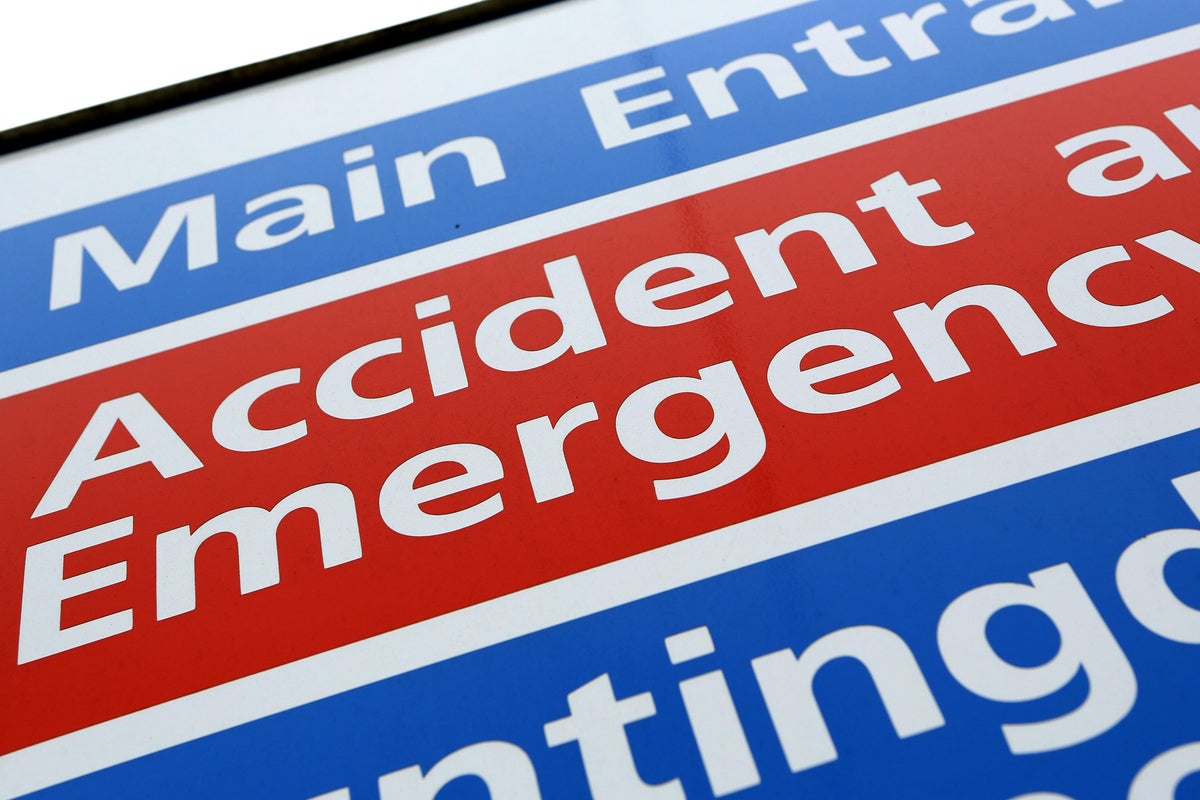
Mental health A&E units will not address long waits for vulnerable patients or cut emergency care waiting times, doctors have warned.
The units, planned for England, will be staffed with specialist doctors and nurses to provide 24/7 support for patients feeling suicidal or experiencing symptoms such as psychosis or mania in a bid to relieve pressure on hospitals amid the ongoing “corridor care” crisis.
But doctors have raised concerns that they could compromise patient safety and warned they will not end the long waits facing mental health patients, or any others waiting to be seen.
Consultant psychiatrist Dr Nuwan Dissanayaka said patients who need both physical and mental health care may not have access to the staff who can spot the signs and address emergency physical health problems.
He said people attending the proposed hubs with symptoms of a mental health crisis may have an underlying physical health care problem, which also need to be addressed.
Dr Dissanayaka gave examples of physical health problems which “mimic” mental illness, such as confusion in dementia patients, and also warned that patients who need physical care following issues such as self-harm or overdoses could also not be treated within the hubs.
He added: “Having a better waiting area, with staff who are not appropriately qualified to manage issues which are not primarily mental health related, is not an alternative to A&E. It does not improve the overall care of mental health patients, even if a proportion of them prefer it.
“The factors which have contributed to the rise in mental ill health - not enough beds, not enough staff, poor workforce planning, inadequate community services - won’t be addressed by having a better waiting area. And the risks for patients inappropriately placed there from serious physical illness, together with a lack of access to assessment and treatment, are worrying.”
Have you been impacted by this issue? Email: rebecca.thomas@independent.co.uk.
The hubs are already in operation at 14 different hospitals but NHS England told The Independent that waiting time data for those has not yet been collected.
Robert Howard, professor of Old Age Psychiatry, told The Independent : “I think the actual problem is the amount of time people have to wait for a bed and that this isn't going to make any difference to that.
“I have real concerns about the safety of patients who may have undiagnosed physical problems, if you are being assessed away from a normal A&E department where there will be access to that physical health investigation and treatment.”
Data obtained by The Independent found the number of mental health patients waiting more than 12 hours in emergency departments across England has increased, with 27 per cent of these patients waiting longer than this in January 2025, up from 22 per cent in 2023.
The proportion of mental health patients waiting for more than 12 hours in A&E is far higher compared to patients overall, of whom 10 per cent wait this long.
Previous exposés by The Independent have revealed that mental health patients are waiting up to eight days in emergency departments for a bed.
The Royal College of Emergency Medicine also pointed out that the initiative would “do nothing to alleviate the problem, which is a lack of beds”.
Mental health A&Es proposed by NHS England have been in operation across several hospitals already.
One study into their efficacy published in December 2023 found the units “did not, in general, meaningfully reduce emergency department visits or psychiatric admissions” and “generally cost more to run than the savings they generated in the short term”.
However, the study also found that they were valued by patients and clinicians and could improve the quality of care experienced by those suffering a mental health crisis.
Another study of four hubs in London found they were regarded by patients and staff as “safe” and a place where patients were treated with “kindness, dignity and respect”.
It found an “optimistic outlook”, however, it did raise concerns about low staffing levels at the units.
NHS England was approached for comment.
TikTok star died after ‘failure’ by mental health services, inquest finds
Phil Robertson’s many controversies following his death age 79
Loneliness is deadly to Americans, former surgeon general says
Fetterman says he’s doing more Senate work amid mental health doubts
New ‘superbug’ antibiotic to treat sepsis and pneumonia enters last phase of testing
UK trains doctors only for NHS to ‘treat them like cr**’, health secretary admits







